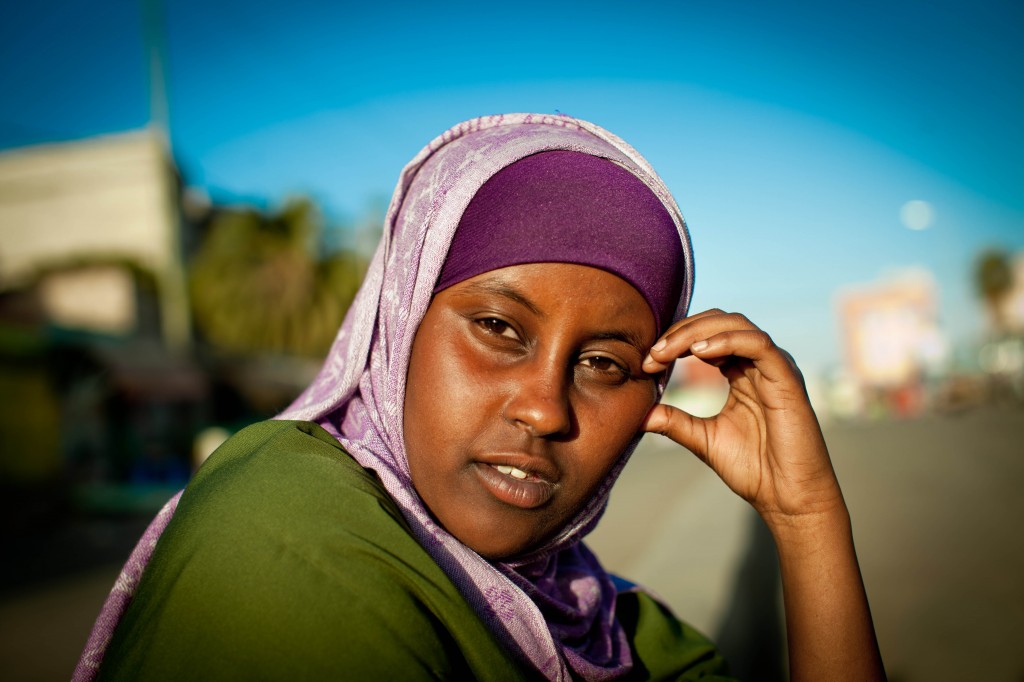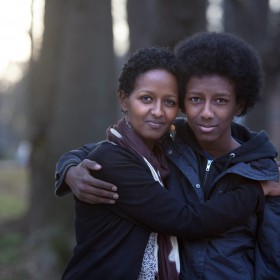Faysa’s story

Faysa in Addis Ababa. Photo: Mate Pose
Large dark eyes and the uncertain look of a 13-year-old girl. Faysa is alone in Addis Ababa, a town of four million people. She works for strangers as a servant: she washes dishes, cooks and brings water to the house.
Faysa fled to Ethiopia from Somalia, one of the most dangerous countries in the world, where the war has been going on for more than two decades. On their way to safety, her brother was killed and she had previously lost her dad too. Her mother is seriously ill and stays in a psychiatric hospital. Faysa’s sister, Farax is her only family, but she lives in Slovenia, where she arrived as a refugee three years ago.
“When the phone rings in the middle of the night and when my sister cries, my heart breaks. Every time we talk, she asks me when her misery will end and when she can come to live with us. I do not know what to say”, says Farax.
In Slovenia Farax applied for family reunification, but her claim was refused. According to the law only the closest relatives are entitled to this legal reunion and a sister doesn’t count to one of them. If a local journalist, a photographer and a legal adviser for refugees had not been involved in the story, the case would have been closed already. Now the fate of this minor is in the hands of the Slovenian Constitutional Court. It will see whether the girl’s basic human rights are violated and whether the law is in accordance with the constitutional at all.
In February a photographer and Faysa’s uncle, Fayal travelled to Ethiopia to arrange at least temporary documents and a safer accommodation for the girl. “Faysa has nothing. If anything happens to her, no one will know she even existed. A little girl, without any help is in permanent danger of rape or slavery”, says the uncle.
There are about 168 million child worker around the world. We will never know the vast majority of them, but we know Faysa.
Text: Jana Cobalt Cover, journalist at Slovenian POP TV










